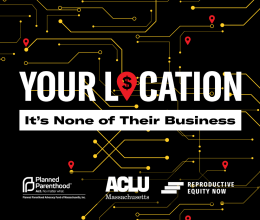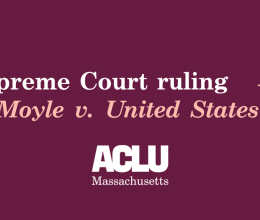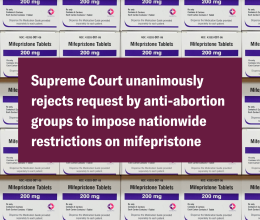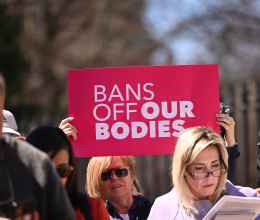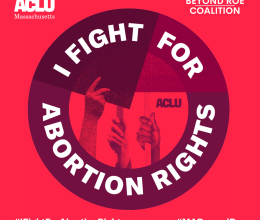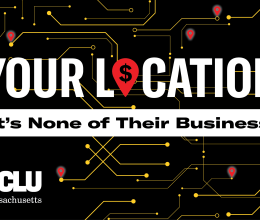The Supreme Court today issued a devastating ruling overturning Roe v. Wade—the landmark decision recognizing the constitutional right to abortion nearly 50 years ago. Today’s ruling in Dobbs v. Jackson will allow anti-abortion politicians to ban abortion in states across the country, setting off a chain reaction with states criminalizing essential care throughout entire regions of the country.
In Massachusetts, abortion will remain legal in the state because of the ACLU and other advocates’ work to pass the ROE Act, which codifies the right to abortion into state law.
“The Court’s ruling will have an immediate and devastating impact on people seeking abortion care in nearly half of the country, taking from them a right that has been central to their ability to plan their lives, families, and careers,” said Carol Rose, executive director of the ACLU of Massachusetts. “These burdens will disproportionately fall on people of color, those struggling to make ends meet, young people, rural residents, immigrants, and LGBTQ+ communities. And make no mistake: anti-abortion politicians won’t stop here. Extremists have made it clear that they will use this ruling to press for a nationwide ban on abortion, as well as bans on birth control, gender-affirming care, and equal marriage, among other basic civil rights and liberties. The ACLU won’t back down until every person has the freedom and ability to make these most personal and life-changing decisions for themselves and their families.”
In Massachusetts, the ACLU is working with partners and lawmakers to protect and expand access to abortion and to ensure that all people can make their own decisions about their bodies and futures. Following the leaked draft opinion last month, the newly rebranded Beyond Roe Coalition—led by the ACLU of Massachusetts, Planned Parenthood Advocacy Fund of Massachusetts, and Reproductive Equity Now—launched an advocacy agenda to make abortion more accessible in Massachusetts. The Massachusetts Beyond Roe Agenda includes over a dozen recommendations for legislative action, budget investments, and regulatory solutions that state leaders can urgently take to expand abortion access; support Massachusetts providers and patients; and increase research and education efforts to help meet existing and growing health care needs.
The Supreme Court’s decision is an unprecedented attack on women’s rights and reproductive freedom, and the effects will be immediate and far-reaching: Half the states in the country are expected to ultimately ban abortion, denying the 36 million women and other people who can become pregnant in those states the fundamental right to decide for themselves whether and when to become a parent. This decision could also lead to pregnancy losses being subject to suspicion, investigation, and arrest, and patients and doctors being thrown in jail.
With staff and members in all 50 states, D.C., and Puerto Rico, the ACLU is poised to carry out a multi-pronged approach to stem the tide of attacks on abortion and expand access across the nation. The ACLU has fought for abortion rights since before Roe was decided, and will continue to work with local partners to challenge abortion bans where we can.

